

Presentation for the Udmurt National Library [1]
…I should say that this book stands a little apart from my other writings.
Usually the writer within me naturally follows the scientist and philosopher; literature is one more battle ground to defend my ideas. This is very apparent in The Real Time Travellers, and less so in The Good Student Variukha. What about the new book, if there are hidden layers, with hidden meanings, their existence is discreet and quiet. Another surprising feature of the book is the way it came into being as if against my own will. After writing Notes of a Misanthrope I could not make up my mind to publish them for a long time, because I understood that a lot of innocent people who had done me no evil would be insulted. However, my friends read the novels, and at last one of them forced me to publish Notes of a Misanthrope on the Internet by threatening that otherwise he would do it himself without my permission.
The Notes are founded upon real events of my life. It seems I’ve wished to transform the suffered pain into something positive, to make something useful of my tortures. Of course I tried to look beyond my personal experience and to see behind the mocking faces of my tormentors something more significant, I would say, a militant egoism cultivated in my contemporaries with so much diligence and so little thought. It’s necessary to add that the Notes, after all, are not my precise autobiography and the main hero is not completely me. I would say that when creating the main person of these Notes I took my own soul, my own personality and removed all superfluities. My protagonist lives in absolute solitude. Her only friends are her car ‘Moskvich’ and the heroes of her unwritten books. Nobody loves her. Of course, my life is not so tragic. Moreover, it’s necessary to understand that she is not a very positive personage. She despises other people, she is possessed with pride, that is, she deserves her punishment.
The second part of my book is the cycle of poems Masquerade of Non-ideal People, which also arose as if apart from my will. First the poem The Prophet was born and I decided that it continues my cycle Anti-poems published in the collected papers The Real Time Travellers. Those who have read the book know what Anti-poems look like: I take a well-known poem belonging to the chefs-d’oeuvre of classical literature and give my own answers to the questions set by its author. I’ve spent some time while looking for an appropriate name to such answer-poems for they are neither retellings nor parodies. In the end, I chose the name Anti-poems as they tended to be much gloomier than the original ones. So, I considered The Prophet as one more anti-poem. Then the preface named The Landscape was written, then something else till once I’ve realized that all these writings form a cycle with its own inner logic and interrelations. Really, if we take the participants of Masquerade one after another, we’ll notice a kind of progressive movement in them. Who is The Interrogator? This is a man who takes on faith none of the ordinary postulates of our life, for example, the assertion that life is beautiful and death is horrible, that everybody must fall in love, create a family, seek the usual advancements in society. The Interrogator requires proofs which don’t exist, of course. Well, he dies because his doctor can’t explain to him why life must be chosen over death. The next personage, The Humanist, has adopted at least the first and the most important postulate: life is always precious and death is always abominable, consequently, murder is the worst sin in the world. However, having adopted the postulate my Humanist brings it to its logical end and prefers to die himself rather than kill anybody. It’s important to hear in this poem how the dying Humanist asks a very significant question, ‘Why am I better than those?’ In other words, he demands an explanation why, during the fight between a man and, for example, a man-eating tiger, the man deserves life and not the tiger.
Two next personages, The Incorruptibles, could answer the question posed above. Man is better than a plant or a beast because Man has a moral sense, Man has conscience. People are able to feel shame and beasts, much less plants, are not. Here I’ve made an exception having in mind two really existing people. They are Cato the Younger and Robespierre. I always wanted to compare these two persons. Both meddled in politics, both became relatively popular, both are known in history as absolutely honest, completely non-mercenary men of principle. And both lost the game after interaction with other people, not so honest and not so non-mercenary. The paradox is that Cato has remained in history with a plus sign and Robespierre with a minus sign, but this is the fortune of fate.
The next three personages might be considered as examples of what could have become of Cato and Robespierre if they had lived after the dissolution of their political projects. Having disappointed in their epoch, in their societies, the next protagonists of Masquerade either look deeply into themselves — as does The Curious who explores his own soul without any pity and mercy — or try to create new worlds and show to others the way to reach them. One of the two, The Liar, has success, the other one, The Prophet, has not. However, it’s difficult to say who is more happy in the end.
From where did I get such an idea: to create this gallery of conventionally positive personages? The fact is that sometimes I’m obliged to ‘talk about life’ with very different folk. They are people of my students’ age, of my age, or people much older than me. I explain to them how suffocating, how difficult is existence in a world where everybody is concerned with nothing more than the consumer’s prosperity, nothing more than the well-being of themselves and of their children. At this moment some of my vis-à-vis begin to look at me with a kind of surprise and ask, ‘And so what? Is it possible to dream about something else? All people behave so, don’t they?’ Maybe, I’ve decided to show that they don’t, that there exist people capable of dreaming about other things. I may be reproached that I consider my heroes through the prism of death, for Masquerade is nothing else than a dance of shadows telling one another about the life they have spent. To excuse myself, I can answer that death has become in our society the last impediment on the way to the absolute paradise of consumption. Death is the last thing even the slogans of ads don’t promise to remove. That’s why death has become the only ultimate reason to think about the spiritual.
The preface of the book contains a question about the crisis of western civilization with its liberal and humanistic ideas. Let me note at once that here and now I don’t want to discuss the political, economic or informational confrontations between different groups. I mean something else. During one of my public lectures I compared our civilization with a critically ill patient lying in a coma in an intensive care unit. Doctors are fussing around him, trying to make his heart work properly, his liver to produce all necessary matters, his kidneys to clear the blood. However, the cerebral cortex is dying and if it dies then all other parts — the heart, the liver, the kidneys — will be useless, the man will become a ‘vegetable’. The same is true for society as a whole. A fair distribution of financial flows and goods is very important, of course. However, if we have no answer for several very simple questions, for example, for what purpose does humankind exists? What are the reasons to live for each individual? What happiness is? — if we don’t answer these questions, no amount of material goods will help us. Of course, the answers are usually transferred from one generation to another, as well as all ideals, but ideals fall into decay little by little, and a previously heroic deed transforms into a farce, with the boundary separating the heroic from the farcical so subtle, so subjective, that it’s really difficult to notice it. The ageing of previous ideals itself makes no problem; the absence of new ones does. That’s what I wanted to say when discussing the crisis of civilization.
1. Izhevsk, January 26, 2015. Translated from Russian by V.V.Shulikovskaya; edited by I. Marshall.
© V.V. Shulikovskaya, 2015–2026.
Website development IPC ’Bon Anza’
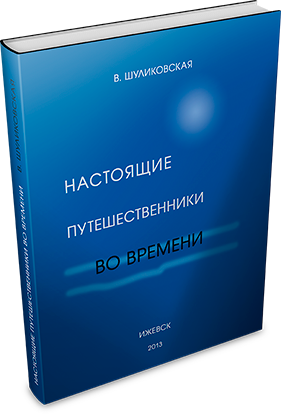
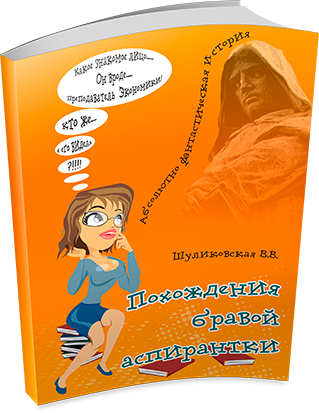
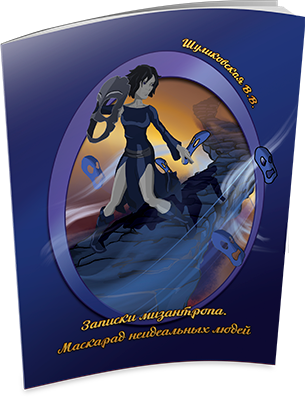
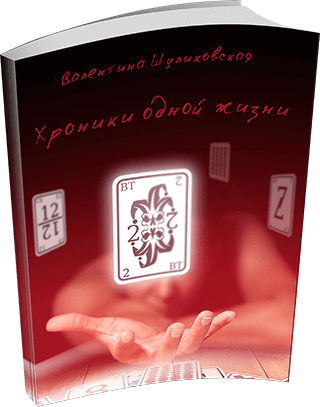
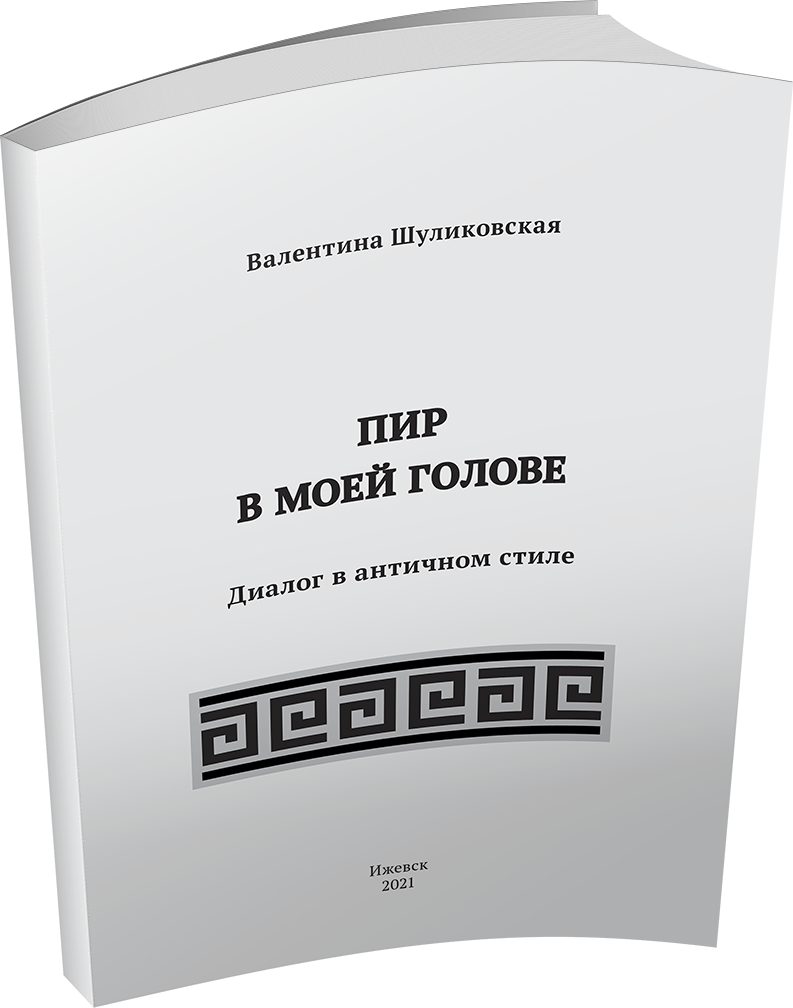
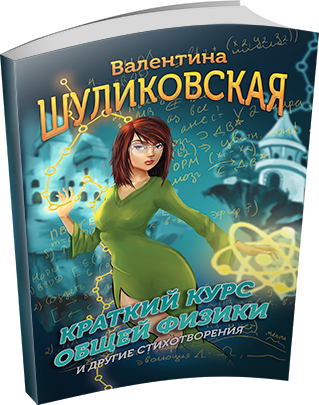
 Rus
Rus

